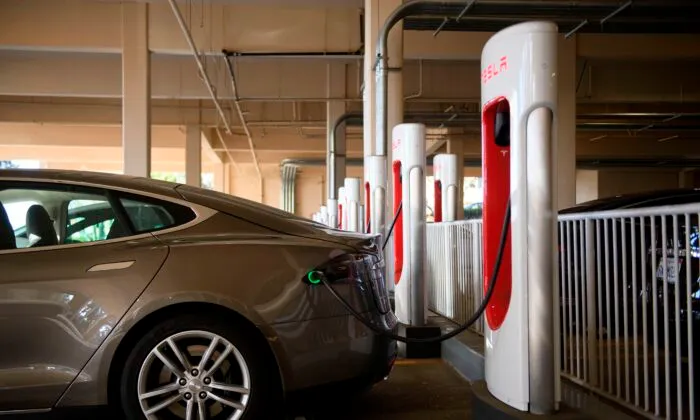Table of Contents
As BFD readers are now aware, I take great delight in pointing out that EVs Are a Bit Shite. But it’s not all games and poking fun: it’s deadly serious, too. EVs are not just a bit shite. They’re not just an environmental disaster: they’re a global political disaster.
And almost no one in the mainstream media, let alone politics, wants to face up to it.
Motoring journalists have been obsessed with electric vehicles for a couple of years but media spruikers of the technology seem to have missed the global implications of the rise of EV production, especially in China.
EVs are “fun”, sure. But they are expensive, disastrous “fun”.
The larger problem for the world, and for the car industries of many first world nations, is China’s rapid rise towards becoming the world’s number two car maker. Many of its new overseas sales are EVs. This industrial transformation is built on soaring fossil fuel power use in China.
So drivers in Europe and the US are paying premium prices for emissions free vehicles that are made in the country that has for decades been driving most of the rise in global CO2 emissions.
The first obvious implication of this is that the virtue signallers in Europe and America aren’t doing a damn thing to lower carbon emissions, as they prattle so loudly. All they’re doing is outsourcing them to China.
As this column has observed, essentially Europe has been outsourcing its polluting industries to China and India for decades. This reduces CO2 emissions in Europe and destroys jobs for European workers but at no net benefit to the planet because European companies are simply making goods in highly polluting countries with lower environmental standards than the UK and EU.
Notably, EVs are the smugmobile of choice for green leftists who love to bang on about “equity”. Except, there’s precious little equity in the EV market.
They are more expensive than traditional cars, driven by the wealthy and subsidised by governments. They are in effect a wealth transfer from the poor to the rich.
Not to mention a transfer of industrial power to China.
The real problem with global attempts to reduce total emissions sits in the electricity space where China has persuaded Western governments to commit to shutting down fossil fuel generation that it and its industrialising rival India are only planning to expand.
Like turkeys voting for Christmas, Western governments, our own included, are not just shutting down reliable fossil fuel power generation but are moving to renewables products largely manufactured in China, again with expanding Chinese fossil fuel use. China makes more than 80 per cent of the world’s solar panels, many manufactured using slave labour in western China. It also dominates the global market for wind turbines, making 70 per of world supply.
The Australian
But the biggest — metaphorically and literally — issue with EVs is their batteries.
Their toxic, behemoth, incredibly flammable batteries.
EV spruikers try to downplay the risks of their batteries, especially fires, but with even just a tiny penetration of the market by EVs, battery fires are becoming a near-daily hazard.
The specialist US motoring website hagerty.com has explained in detail why many country US race tracks are refusing to let EVs or hybrids compete. It says there are only two ways to deal with lithium-ion battery fires: “Douse a fire with water to cool it down: a lot of water, between 3000 gallons (11,356 litres) and 30,000 gallons depending on the incident. Cooling takes 100 times more water than a gasoline fire.” The other method is to let the fire burn out and then submerge the entire smouldering wreck in water.
EV batteries can be compromised in even small vehicle accidents and that is when they become dangerous. This is now feeding into soaring insurance premiums in the UK, where the Guardian and the Express newspapers have reported EV insurance premiums are set to rise by up to 1000 per cent.
But, while the great, green Grauniad wrings its hands about soaring insurance premiums and the increased cost of repairing EVs (more than 25% higher than normal cars), it studiously avoids the nub of the problem.
The batteries.
The battery is about half the cost of a new EV and batteries that sit under the car floor are easily damaged in quite minor accidents. Repairers say fixing batteries is extremely difficult and insurers are tending to write off even quite new cars if there is even slight damage to the battery […]
A March 21 Reuters report written from London and Detroit says: “For many electric vehicles, there is no way to repair or even assess even slightly damaged battery packs after accidents, forcing insurance companies to write off cars with few miles … And now those battery packs are piling up in scrap yards in some countries …”
Even so, the hazard of incredibly toxic, near-unquenchable fires pales when compared to the environmental disaster of making, transporting, and disposing of the damn things. The mining and refining of minerals like lithium, cobalt and nickel for EV batteries is energy intensive (which means more carbon emissions) and prone to leaving literal lakes of toxic waste behind. At the end of their relatively short life spans, batteries are rarely recycled, but end up in storage or landfill, often leaking more toxic chemicals.
Few journalists will write it, but it is hard to justify putting up with EV range anxiety and the extra trouble finding charging stations while still paying the large premium over conventional car prices. This is simple technology that won’t do the planet much good, at least until electricity across the world is made without emissions. And the mining of many of the rare earths needed to make batteries is dangerous in some poor countries, both for the people working in mines and for the environment.
The Australian
Tell me again, how EVs are “saving the planet”?









